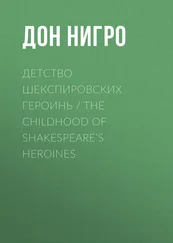‘But we can fall. We can fall down the gap. Down the crack.’
‘A gap is not the same thing as a crack, my boy. Gaps are part of nature, part of the way things are. You can’t fall down a gap and disappear. It just doesn’t happen. A crack is quite different. A crack is a break in the order of nature. It is like cutting yourself with a knife, or tearing a page in two. You keep saying we must watch out for cracks, but where are these cracks? Where do you see a crack between you and me? Show me.’
The boy is silent.
‘The twins in the sky are like twins on earth. They are also like numbers.’ Is this all too difficult for a child? Perhaps. But the boy will absorb his words, he must hope for that — absorb them and mull over them and perhaps begin to see the sense in them. ‘Like One and Two. One and Two are not the same, there is a difference between them which is a gap but not a crack. That is what makes it possible for us to count, to get from One to Two without worrying about falling.’
‘Can we go and see them one day, the twins in the sky? Can we go in a ship?’
‘I suppose so, if we can find the right kind of ship. But it would take a long time to get there. The twins are very far away. No one has been to visit them yet, not to my knowledge. This’ — he stamps his foot on the ground — ‘is the only star we human beings have ever visited.’
The boy stares at him in puzzlement. ‘This isn’t a star,’ he says.
‘It is. It just doesn’t look like a star from close up.’
‘It doesn’t shine.’
‘Nothing shines from close up. From a distance, however, everything shines. You shine. I shine. The stars certainly shine.’
The boy seems pleased. ‘Are all the stars numbers?’ he asks.
‘No. I said the twins were like numbers, but that was just a way of speaking. No, the stars are not numbers. Stars and numbers are quite different things.’
‘I think the stars are numbers. I think that is Number 11’ — he stabs a finger up at the sky — ‘and that is Number 50 and that is Number 33333.’
‘Ah, do you mean, can we give each star a number? That would certainly be one way of identifying them, but a very dull way, very uninspired. I think it is better that they have proper names, like Bear and evening star and Twins.’
‘No, silly, I said each star is a number.’
He shakes his head. ‘Each star is not a number. Stars are like numbers in a few respects, but in most respects they are quite unlike them. For instance, the stars are scattered all over the heavens chaotically whereas the numbers are like a fleet of ships sailing in order, each knowing its place.’
‘They can die. Numbers can die. What happens to them when they die?’
‘Numbers can’t die. Stars can’t die. Stars are immortal.’
‘Numbers can die. They can fall out of the sky.’
‘That is not true. Stars can’t fall out of the sky. The ones that do seem to fall, the shooting stars, aren’t real stars. As for numbers, if a number were to fall out of the ranks, then there would be a crack, a break, and that is not how the numbers work. There is never any crack between the numbers. No number is ever missing.’
‘There is! You don’t understand! You don’t remember anything! A number can fall out of the sky like Don Quixote when he fell down the crack.’
‘Don Quixote didn’t fall down a crack. He descended into a cave, using a ladder made of rope. Anyhow, Don Quixote isn’t relevant. He isn’t real.’
‘He is! He is a hero!’
‘I’m sorry. I didn’t mean to say what I said. Of course the Don is a hero and of course he is real. What I meant to say is that what happened to him doesn’t happen to people any more. People live their lives from beginning to end without falling down cracks.’
‘They do fall! They fall down cracks and you can’t see them any more because they can’t get out. You said so yourself.’
‘Now you are confusing cracks with holes. You are thinking of people dying and getting buried in graves, in holes in the ground. A grave is made by gravediggers using spades. It is not something unnatural like a crack.’
There is a rustle of clothing and Inés materializes out of the dark. ‘I have been calling and calling,’ she says crossly. ‘Does no one ever listen?’
The next time he comes knocking at the apartment, the door is flung open by the boy in a flushed, excited state. ‘Simón, guess what!’ he shouts. ‘We saw señor Daga! He’s got a magic pen! He showed me!’
He has almost forgotten about Daga, the man who humiliated Álvaro and the paymaster at the docks. ‘A magic pen!’ he says. ‘That sounds interesting. May I come in?’
Bolívar approaches him magisterially and sniffs his crotch. Inés is sitting hunched over her sewing: he has a momentary, unsettling vision of what she will be like as an old woman. Without greeting him she speaks. ‘We went in to the city, to the Asistencia, to get the child allowance, and this man was there, this friend of yours.’
‘He is no friend of mine. I have never so much as exchanged a word with him.’
‘He’s got a magic pen,’ says the boy. ‘There’s a lady inside it, and you think it is a picture, but it isn’t, it’s a real lady, a tiny tiny lady, and when you turn the pen upside down her clothes fall off and she is naked.’
‘Mm. What else did señor Daga show you, besides the tiny lady?’
‘He said it wasn’t his fault that Álvaro got his hand cut. He said Álvaro started it. He said it was Álvaro’s fault.’
‘That’s what people always say. It’s always someone else who started it. It’s always someone else’s fault. Did señor Daga by any chance tell you what has become of the bicycle that he took?’
‘No.’
‘Well, next time you see him, ask him. Ask him whose fault it is that the paymaster has no bicycle and has to do his tour on foot.’
There is silence. It surprises him that Inés has so little to say about men who take little boys aside and show them pens with naked ladies inside them.
‘Whose fault is it?’ says the boy.
‘What do you mean?’
‘You said it is always someone else’s fault. Is it señor Daga’s fault?’
‘That the bicycle is gone? Yes, it is his fault. But when I say it is always someone else’s fault I am talking more generally. When something goes wrong we at once claim it is not our fault. We have been taking that line since the beginning of the world. It seems to be ingrained in us, part of our nature. We are never prepared to admit it is our fault.’
‘Is it my fault?’ asks the boy.
‘Is what your fault? No, it isn’t your fault. You are just a child, how can it be your fault? But I do think you should steer clear of señor Daga. He is not a good model for a young person to follow.’ He speaks slowly and seriously: the warning is directed as much to Inés as to the boy.
A few days later, coming up out of the hold of a ship at the docks, he is surprised to see Inés herself on the quayside, deep in conversation with Álvaro. His heart gives a lurch. She has never been to the docks before: it can only be bad news.
The boy is gone, says Inés, stolen away by señor Daga. She has called the police but they will not help. No one will help. Álvaro must come; he, Simón, must come. They must track Daga down — it cannot be hard, he works with them — and restore her child to her.
Women are a rare enough sight on the dockside. The men glance curiously at the distraught woman with her wild hair and her city clothes.
By degrees he and Álvaro get the story out of her. The queue at the Asistencia was long, the boy was restless, señor Daga chanced to be there, he offered to buy the boy an ice cream, and when next she looked they were gone, as if they had vanished from the face of the earth.
Читать дальше












